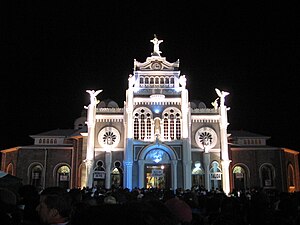Criminal Defense
Contact Us
BlawgRoll
Search This Blog
Blog Archive
-
▼
2009
(70)
-
▼
October
(22)
- Geologists debunk soil impact on wine at Ore. talk
- UPDATE 1-Three ex-Marsh execs acquitted in bid-rig...
- Study: Warmed NW forests may yield less timber
- Military Suspects and Accused's Have Rights Too!
- THE INFLUENCE GAME: Bill Gates sways govt dollars
- After a year behind bars, Tom Petters to face fede...
- Tired from a tough hike? Rescuers fear Yuppie 911
- Pilot who overshot airport denies crew was napping
- Microsoft sales fall; cost cuts please investors
- Pilot that overshot airport: Crew wasn't napping
- Feds: 18 busted in Wash. as part of cartel raid
- Largest US sting on drug cartel arrests 300-plus
- Boeing posts $1.6B loss in 3Q on plane charges
- With Windows 7 and new designs, PCs looking better
- 2nd trial begins in Seattle Jewish center shooting
- Gates Foundation grants support unusual research
- $2 million in fed, state aid for WA landslide fix
- More money might not speed salmon culvert fixes
- Pierce County assessor named in 6 complaints
- Old mill finds new life
- Criminal Defense Drunk in Court
- Is your husband faithful-What are the signs that h...
-
▼
October
(22)
Monday, October 26, 2009
After a year behind bars, Tom Petters to face federal jury – Minneapolis Star Tribune
Posted by Criminal Defense Lawyer at 1:54 AM Image via Wikipedia
Image via Wikipedia
Sampson-Jones said he envisions a line of questioning that suggests self-serving motives by Coleman, such as, “You knew this was about to crash so you got in with prosecutors first to get the best deal?” He said defense attorneys may try to suggest that she has an incentive to lie. Her lifestyle, including gambling and jetting to Costa Rica for vacations, may also come under scrutiny.
On the other hand, Sampson-Jones said the government can’t sugarcoat Coleman’s cooperation. “The prosecution can’t paint her as a saint. She was in on it, too,” he noted.
Others who were part of the investment operation who are expected to testify are Robert White, who drafted fraudulent purchase orders for electronic goods to help fool investors; Michael Catain, who used an office in his Excelsior car wash as a conduit for large movements of cash to and from the Petters operation, and Larry Reynolds, a Los Angeles businessman who let Petters use his corporate bank account to move billions of dollars, allegedly to create the illusion of legitimate business transactions.
Reynolds has gotten particular attention from Petters’ attorneys, who are seeking to link him to past criminal activities that led to his participation in the federal witness protection program.
“This is a key part of our case,” defense attorney Paul Engh told Kyle in a pre-trial hearing last week. “This person has a lifelong history of fraudulent activity. He had a scheme and a plan to deceive people, including Mr. Petters.”
Key to defense: an attack
“There are a couple of routes to victory for the defendant,” said Don Lewis, a former federal prosecutor and dean of the Hamline University School of Law. “First, you attack the government witnesses and their credibility. If you can very quickly get jurors to dislike a government witness because of bad motives or a shadowy past, then that may yield some sympathy for the defendant.
“Second, you attack the government as being abusive, heavy handed, incompetent. Maybe they mishandled a witness,” Lewis said. “And, third, most white-collar defendants got to be successful because they can work a room. There might be strength of personality.”
One of the mysteries of the trial might be the activities of Frank Vennes Jr., a Petters associate in the investment operation who recruited investors while collecting multimillion-dollar commissions.

Labels: Costa Rica, Crime, Law, Lawyer, Los Angeles, Prosecutor, United States, United States Attorney
Breaking News Stories By Title
Top Rated Articles
-
-
Patent Translation Services - *Application under the Patent Cooperation Treaty (PCT)* The PCT is an international agreement between 117 countries to provide an easier patent filling ...15 years ago
-
How to Use Google to Search For Government Court Record Databases - If you’re looking to search for court records then there are a number of ways you can go about it. Some can be time-consuming, while other ways will get...15 years ago
-
Harmful Anesthesia Errors - Patients undergoing surgery are administered anesthesia so that they are unconscious during their procedures. Without anesthesia, surgery would be impos...15 years ago
-
When an Employer Refuses to Compensate For on Call Time - There are a number of ways in which employers can try to get around paying their employees what the employees are legally entitled to by suggesting that...15 years ago
-
Intellectual Property and the Economics of Entertainment - There’s been buzz over the past few weeks concerning how Cond Nast, the New York Times, and other publishing companies are busily preparing digital vers...15 years ago
-
Estate Planning and the Forgotten Right to Recapture Copyrights - If your client’s estate plan overlooks the right to terminate contracts and recapture copyrights, it could cost your client’s heirs significant future i...15 years ago
-
All About OPM Lawyers and Federal Disability Retirement - we can’t support but give utmost prominence and importance to our occupation which is our source of income. But there are situations that can lead us to...16 years ago
-
-
-
-
-
-
-
-
-
-
-
-
-
-
-

0 comments:
Post a Comment